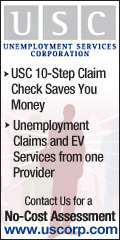
| October 2011 | Past Issues | Advertise |
Building Communication Skills to be a More Effective Manager
That’s why it is often troubling when a boss tells us, "You need to improve your communication skills." This can be particularly difficult for those of us who have moved up the ranks, in part because of our ability to relate to others. But not all communication skills are innate, and executives who are dominant in some areas may still need work in others. Effective communication skills can make or break a presentation, a project, a deal or even a career. With so much riding on communication, it makes sense to put more thought and effort into honing your skills. Of course, many managers don’t know where to start and how to rectify their deficits. Workplace communication runs the gamut: composing important emails, writing a proposal, discussing issues, running a staff meeting, delivering difficult messages or maybe giving a speech in front of stockholders. The key point is to target specific communication skills for development. The first step is to do an assessment. An assessment will help you pinpoint areas that need improvement. Perhaps you need to beef up your presentation abilities; or you may need to improve your one on-one or small group interactions; maybe you need to learn to deliver difficult messages well or maybe you need to work on your communication via technology, such as by email. For example, Blackberries have made it almost too easy to shoot off an email at the spur of the moment. Most managers could benefit from working on collecting and organizing their thoughts and removing some of the emotion before hitting the "send" button. During the assessment, you should also get opinions from others. Ask a trusted colleague to give you constructive criticism about your communication abilities. For instance, if you need to improve your presentation skills, the colleague can help you target where to start: Do you need a stronger introduction? Are you able to effectively engage your audience? Are you dynamic? Are you defensive in addressing questions? Getting specific feedback will help you further strengthen your skills. Once you have completed your assessment and know which skills need sharpening, you can then focus on improving your techniques. Here is a six-part framework to consider when developing a more effective communication strategy: 1. Who is the audience? Are you speaking to board members, colleagues at a staff meeting, new clients, a department, the entire organization or an external audience? Consider setting as well: there is a vast difference between a one-on-one meeting, a small group or a speech in front of thousands. Know your audience and what they are looking for. Communication is not one-size-fits-all, but should be customized for each specific group. 2. What is the goal? What are you trying to accomplish with this communication? Are you giving a report or trying to start a dialog? Are you answering questions or asking them? Are you brainstorming ideas or trying to solve a business issue? Think about what you need as an end result as a way to frame the communication. 3. What are the messages? You may want to relay one main message or several. It is important to be succinct and to have a deep understanding of your messages so you can get your point across successfully. If you aren’t able to clearly articulate your messages to another person—without stumbling—you need to develop them further. 4. What is the content? The content is the actual information you will include in the communication. How will you structure the information? What is the best format? What is the sequence? What technologies will you need and do you have a mastery of them? 5. Where can I get feedback? Reach out to others for feedback. Where does your communication style need strengthening? Are the messages clear? Does information need to be added, removed or more clearly explained? Many of us develop "tunnel vision" when crafting a speech, proposal or presentation, and a fresh set of eyes can lend depth and perspective to the project. 6. How can I refine it? Use the information gathered from your feedback sources to polish your communication. This is a tricky step in the process. You want to spend enough time fine-tuning your work, but not so much time that you overwork—and possibly weaken—it. Effective communication is vital to being a successful leader. Yet, most of us have at least one area of communication where we could use improvement. If you identify that area and follow this framework for honing your skills, you can turn yourself into a better manager by becoming a more effective communicator. Improving communication skills can help build more effective teams, organizations and careers. About the Author: Mike has extensive executive management and senior-level consulting experience. Before joining Camden, he held diverse senior line management roles with FleetBoston Financial. His practical, hands-on line management experience is exemplified in his consulting work with executives and senior leadership teams. Mike holds a Bachelor's degree from Harvard College and completed extensive coursework at Harvard Business School. He completed executive training at the Center for Creative Leadership and he is certified in the Center's developmental assessment instruments. Mike served on the Board of Directors of the Bankers Association of Foreign Trade, the Rhode Island Public Education Fund, Special Olympics Rhode Island and the Rhode Island Zoological Society. Outside of Camden, Mike enjoys an occasional round of golf, traveling with his family and is involved in work with several community and non-profit organizations. |
|
303 Wyman Street, Suite 285, Waltham, MA 02451-1253 |
 |



